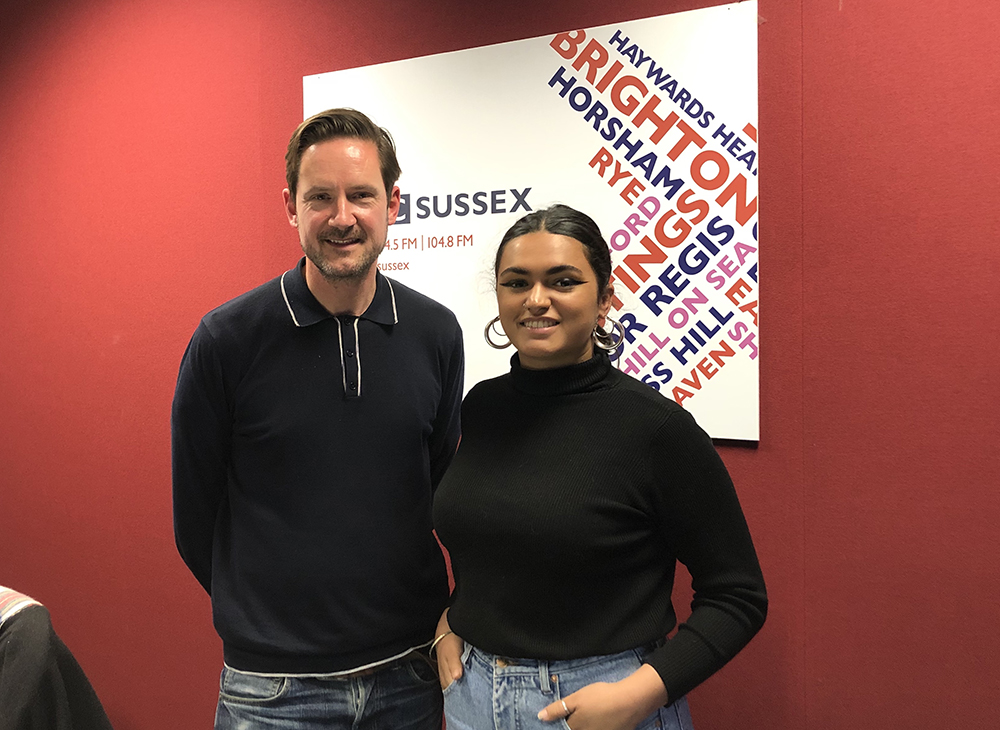Hello! We celebrated 5 years of Make (Good) Trouble with a party – thanks to everyone who joined us! For those who don’t know our story, we began as Brighton5, aiming to reduce mental ill health in young people. Whilst that aim hasn’t changed, we’ve grown hugely in the last five years.
Au revoir Lola Ray!
We also said a fond farewell to Lola Ray who’s off on her travels for a year or so. She spoke to us before she left about her time at Make (Good) Trouble and what she’s learnt along the way. It was a lovely discussion.
👉 Read the interview with Lola here.
In the news:
Schools face rise in violence and behaviour issues
There’s been a marked increase in violence and behaviour issues reported in schools, with more young people staying home from school, or just not attending lessons. The Guardian reported that, “Unmet special needs, mental health issues and persistent post-pandemic absence are all creating tensions in schools, which can result in breaches of the behaviour code.” (The Guardian: Headteachers in England tell of worsening behaviour of pupils – and parents.)
We believe that more investment and support should be given to cash-strapped schools with a bigger focus on student wellbeing rather than on exam results. The Sutton Trust reports that underinvestment has resulted in low morale among teachers, cuts to teaching staff, and (perhaps unsurprisingly) difficulty recruiting new staff.
👋 If you need help, take a look at our Help page on Education, exams and school refusal. One great resource is Not Fine in School, which is an organisation set up by parents of children who have experienced school attendance barriers.
📚 If you’re interested in delving deeper into this subject, there’s a fascinating and sobering report by Public First that looks into the reasons behind today’s “attendance crisis”.
Public First: Listening to, and learning from, parents in the attendance crisis.
One in five children and young people had a probable mental health disorder in 2023
New NHS data “found that 20.3% of eight to 16-year-olds had a probable mental disorder in 2023. Among 17 to 19-year-olds, the proportion was 23.3%, while in 20 to 25-year-olds it was 21.7%.” And while these numbers haven’t risen in the past year, they haven’t decreased either, and these figures are clearly far too high. Read the NHS Digital report.
👋 We have plenty of resources to help young people with mental health issues. Our BBC radio series Raising Teens has a wealth of advice and insights. You can find links to all episodes here – they cover everything from anxiety, loneliness and self-harm to cannabis, county lines, and understanding the teenage brain. We have a brand new series coming out in January, so watch this space for news!
💌 Did you know that you can get our round up straight to your inbox every month? Just subscribe here and we’ll do the rest!
MGT News!
There’s still time to sign up for our Winter Holiday Club!
🎭 There are still free places at our 3-day drama Holiday Club this December run by the amazing people at Dragon Drama. Find out more here 👉 Winter Woodland Drama Workshop.
The Catalyst protest banners
Our latest Catalyst workshop with artist Kerry Lemon (below) was a great success with some amazing protest banners created. We’ll be running new creative workshops in the new year as part of The Catalyst programme.

Happy 40th birthday Hangleton & Knoll Project!
Make (Good) Trouble was commissioned to make a film to celebrate 40 years of the Hangleton & Knoll Project. If you don’t know about this amazing community in Brighton, take a look at the film!
That’s all for this issue. If you have any suggestions or news you think we should include in next month’s round up, please comment below or get in touch.
💌 Did you know that you can get our round up straight to your inbox every month? Just subscribe here and we’ll do the rest!


